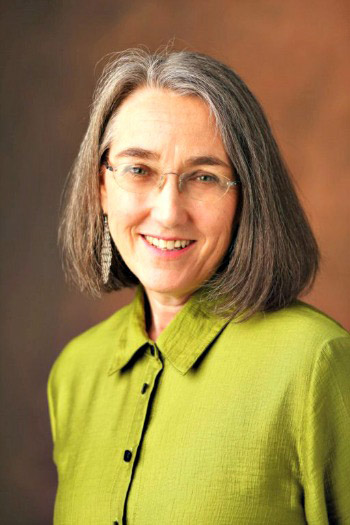Three Vanderbilt University professors are among 175 scholars, artists and scientists named the 2013 John Simon Guggenheim Memorial Foundation Fellows.
Kate Daniels, Jane Landers and Daniel J. Sharfstein have been chosen from almost 3,000 applicants for the highly coveted fellowship. Guggenheim recipients are appointed on the basis of prior impressive achievement and exceptional promise.
“The Guggenheim Foundation has recognized the pathbreaking quality of humanistic research at Vanderbilt,” said Carolyn Dever, dean of the College of Arts and Science. “Kate Daniels and Jane Landers are national leaders in their disciplines, and the Guggenheim Award recognizes both their accomplishments and their potential. Kate and Jane are highly visible leaders on our campus, as well, whose efforts in teaching and program building have advanced the Arts and Science mission on every front. The Guggenheim Award is a great tribute to the full range of their accomplishments.”

“A Guggenheim Fellowship is a singular honor, and I cannot think of anyone more deserving than my colleague Dan Sharfstein,” said Chris Guthrie, dean and John Wade-Kent Syverud Professor of Law. “He is a creative scholar, a gifted writer, and an insightful and empathic person. Despite all of the accolades he has already received, he has only begun to scratch the surface of his potential. I am grateful to Guggenheim for supporting Dan’s important work, and like everyone familiar with Dan’s scholarship, I am anxiously awaiting Dan’s next book.”
Daniels, professor of English, will devote part of her fellowship to writing new poems related to her archival research of Eastern State Hospital. Established in Virginia in 1770 as The Public Hospital for Persons of Insane and Disordered Minds, it was the first public institution for the mentally ill in the United States. It remains in operation.

“Part of my interest in capturing this subject matter is related to two of my classes: ‘The Art of Medical Writing’ and ‘Why Write: Perspectives on Literary Creativity,’” Daniels said. “Both of these investigate poetic language, literary creativity, and the psychology of creative writers.”
In addition, Daniels will work on another poetry project that takes an interdisciplinary approach to subject matter spanning the field of medicine/illness/health care, and its many connections with creative writing. She will focus on bipolar disease, in particular, including its prevalence among poets across time and new ways of understanding its role in linguistic creativity and literary production.
Daniels, who directs Vanderbilt’s MFA Program in Creative Writing, is an affiliated faculty member in the Center for Medicine, Health and Society. She previously served as associate dean in the College of Arts and Science. She earned her master’s degree from the University of Virginia, as well as a master of fine arts degree from Columbia University. Recent poems of Daniels, who came to Vanderbilt in 1994, have been published in Best American Poetry 2010 and Best American Poetry 2008. Her books include A Walk in Victoria’s Secret (LSU 2010), Four Testimonies (LSU, 1998) and The Niobe Poems (Pittsburgh, 1989). She has received the Pushcart Prize, the James Dickey Prize and the Fellowship of Southern Writers’ Hanes Award for Poetry, among others.

Landers, the Gertrude Conaway Vanderbilt Professor of History, has written extensively on Africans in the Atlantic World, including Atlantic Creoles in the Age of Revolutions (Harvard, 2010). The book won the Rembert Patrick Prize and an honorable mention for the Bolton-Johnson Prize for Best Book in Latin American History from the Conference on Latin American History.
“I plan to complete a book on the evolution of communities of African descent in the Iberian Atlantic from their earliest formulations as autonomous kingdoms in the wilderness through their last vestiges as formally recognized free black towns in the 18th century,” Landers said. “This project, which builds on more than 20 years of ethno-historical archival research in Spain, Cuba, Ecuador, Colombia, Mexico, the Dominican Republic and Brazil, is informed by archaeological investigations of African sites in the Americas.
She noted that archival records for Africans in the Iberian Atlantic are rich and diverse with Catholic Church records dating from the 1500s as well as historical records from both free and enslaved Africans in the Iberian colonies.
Landers, who earned her doctorate at the University of Florida, serves as director of the Ecclesiastical and Secular Sources for Slave Societies digital archive at Vanderbilt. Its mission is to preserve the oldest records for Africans in Brazil, Colombia, Cuba and the present-day United States. The former associate dean in the College of Arts and Science joined the faculty in 1992. Landers has received fellowships from the National Endowment for the Humanities, American Council of Learned Societies, British Library Endangered Archive Programme and Fund for the Improvement of Post-Secondary Education. She currently co-directs Vanderbilt’s Andrew W. Mellon Foundation John E. Sawyer Seminar, “The Age of Emancipation: Black Freedom in the Atlantic World and the Circum-Atlantic World.”
Sharfstein, professor of law, was awarded a fellowship for his new book on post-Reconstruction America, Thunder in the Mountains: The Clash of Two American Legends, Oliver Otis Howard and Chief Joseph of the Nez Perce. “This is an exploration of post-Reconstruction America that focuses on the experiences of a Union general who headed the Freedmen’s Bureau after the Civil War,” Sharfstein said. “The general later commanded army forces against Native American tribes in the Pacific Northwest.”
Sharfstein’s first book, The Invisible Line: Three American Families and the Secret Journey from Black to White (Penguin Press, 2011), won the 2012 J. Anthony Lukas Prize for nonfiction, among other awards. For his research on civil rights and the color line in the American South, Sharfstein was awarded an Alphonse Fletcher Sr. fellowship and a National Endowment for the Humanities fellowship.
Sharfstein co-directs Vanderbilt’s Social Justice Program and teaches courses in American legal history and property law. He was honored with the student-selected Hall-Hartman Award for Outstanding Teaching for his seminar, “The Legal History of Race in the United States.”
A graduate of Harvard College and Yale Law School, he clerked for Judges Dorothy W. Nelson of the Ninth Circuit Court of Appeals and Rya W. Zobel of the Massachusetts District Court. Prior to law school, he worked as a journalist in West Africa and Southern California. He was a Samuel I. Golieb Fellow in Legal History at New York University School of Law before joining Vanderbilt’s law faculty in 2007. He is an affiliated professor in the Department of History.
The John Simon Guggenheim Memorial Foundation was founded in 1925 by U.S. Senator Simon Guggenheim and his wife as a memorial to a son who had passed away.
In 2012, Jonathan Lamb, Andrew W. Mellon Professor of the Humanities, and William Luis, Gertrude Conaway Vanderbilt Professor of Spanish, were honored with Guggenheim Fellowships.
Other Vanderbilt recipients include William Caferro, Gertrude Conaway Vanderbilt Professor of History; Michael Bess, Chancellor’s Professor of History; Barbara Hahn, Distinguished Professor of German; Ruth Rogaski, associate professor of history; Colin Dayan, Robert Penn Warren Professor in the Humanities and professor of English; Jay Clayton, William R. Kenan Jr. Professor of English; Vereen Bell, professor of English; Paul Freedman, former professor of history; John Wikswo, Gordon A. Cain University Professor; Mark Jarman, Centennial Professor of English; Matthew Ramsey, associate professor of history; Edward Saff, professor of mathematics; and Vaughan Jones, Stevenson Professor of Mathematics.